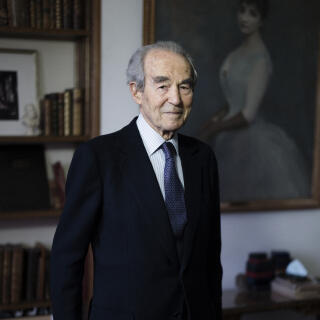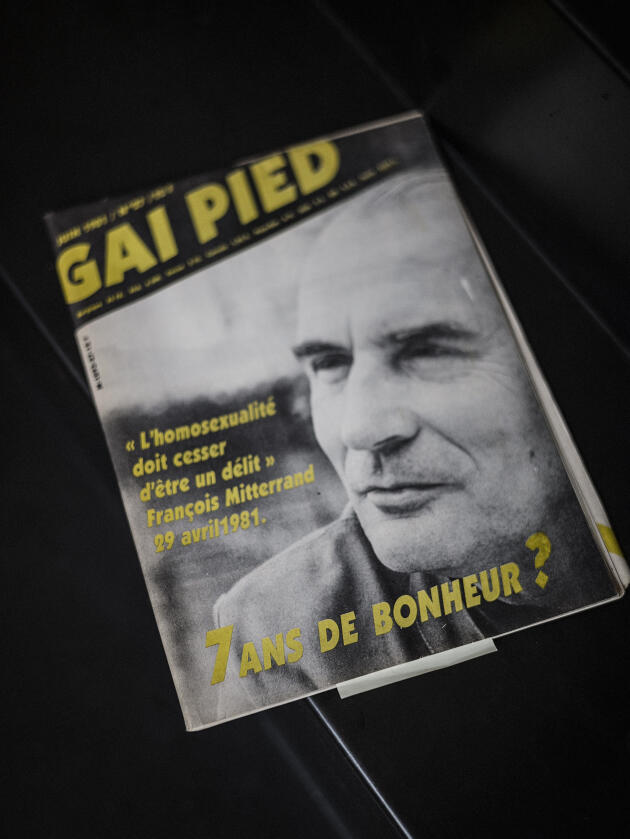


'Punishing homosexuals was re-vol-ting': Robert Badinter's 1982 plea for the gay cause
Long Read'The underground years (5/5).' On August 4, 1982, at President François Mitterrand's instigation, France's so-called 'offense of homosexuality' was repealed. Addressing Parliament, Justice Minister Robert Badinter said: 'It's high time we realized just how much France owes to homosexuals.'
"Five, four, three, two, one!": The crowd counted down to 8 pm on Sunday, May 10, 1981. The "gay tea dance" at the Le Palace nightclub had been in full swing for several hours when the face of the new president – the Socialist François Mitterrand – appeared on the screen set up by Fabrice Emaer. The owner of this famous Paris club personally announced the news to the thousand or so regulars that had crowded into the room. The dancefloor erupted in cheers and roses flew from the balcony. Emaer started singing the Grace Jones version of Edith Piaf's famous ballad "La Vie en Rose." The party would go on until morning.
Had this prince of Parisian gay nights sensed that change was coming? Over the preceding few weeks, he had displayed a newfound enthusiasm for the left wing, that was not shared by his most prominent clients or friends, such as fashion designer Yves Saint Laurent and businessman Pierre Bergé. At the Palace, most of the "rich and beautiful people" were worried about the promises of nationalization or the appointment of Communist ministers, who were frowned upon by the American market. Above all, they feared future tax hikes. Photographer Helmut Newton was the first to go into exile in Monaco, soon followed by fashion designer Karl Lagerfeld.

Not everyone in the LGBTQ+ community shared the same interests. The ordinary patrons of Le Palace went off to Place de la Bastille, where Mitterrand was being celebrated. The Emergency Committee against Homosexual Repression (CUARH), which for the past two years had united almost all the LGBTQ+ activist movements and lobbied to put "the gay question" on the presidential agenda, unfurled its banner: "Les homos ont choisi la liberté" ("Homos have chosen freedom"). Yet activists were reluctant to give in to euphoria and believe in a miracle. The team at Gai Pied magazine was looking for its next cover title and settled on "Seven years of happiness?" With a question mark, and a lot of cautiousness.
'Re-vol-ting'
Voting for the Socialist candidate was not an immediate nor obvious choice. Should people put a pink triangle in the ballot box, as the writer Yves Navarre had suggested a few months earlier? Support the comedian Coluche, who ran as a protest candidate? Or the Green candidate Brice Lalonde?
"Many gay activists came from leftism," explained historian Antoine Idier. "Trusting the institutional left was not self-evident, especially as up until then the Socialists had shown little interest in homosexual issues. In the 1970s, some local councilors had even shown hostility to certain activist groups." The abolition of the "offense of homosexuality" was not one of Mitterrand's 110 proposals. Yet all it took was a few statements from him, between the two rounds of the election, for all that to be forgotten.
You have 90% of this article left to read. The rest is for subscribers only.
